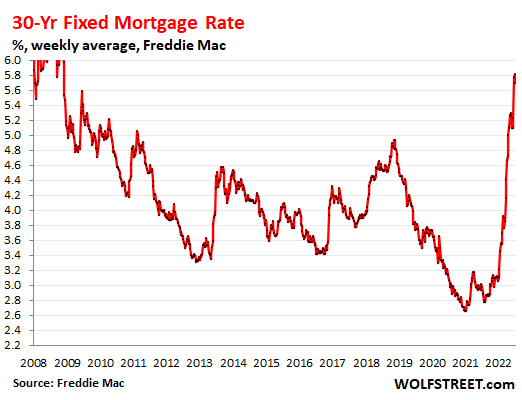Are San Diego's short-term rental regulations strong enough to … – The San Diego Union-Tribune

San Diego’s new short-term rental regulations went into effect on May 1, but some property owners have taken advantage of an apparent loophole.
Dozens of property owners have found a way to get multiple licenses, and one individual even accumulated 110 two-year licenses. The hope of city leaders was that the new law would free up much-needed housing for long-term renters.
While only one license per person is allowed, some property owners have acquired several licenses for whole-home rentals via proxy hosts, many times within the same building. One limited partnership, for example, owns an eight-unit apartment complex in Pacific Beach with eight licenses.
However, the city’s law so far has accomplished one of its goals — limiting the number of vacation rentals. There are still more than 1,300 licenses available for whole-home rentals under San Diego’s mandated cap.
Q: Are San Diego’s short-term rental regulations strong enough to preserve long-term rental stock?
Phil Blair, Manpower
NO: Evidently not. With most new, and controversial legislation, people look for the loopholes. The priority now is closing those loopholes so our residential communities do not turn into resorts. Housing needs to stay the focus.
Gary London, London Moeder Advisors
YES: This is a qualified “yes” because STR rules are unnecessary, and certainly don’t need to be strengthened. The STR count is demonstrably low. Tinkering with the rules has little to do with preserving housing stock, even with some creative interpretation. There is clearly a visitor demand for STR’s, and their existence benefits our economy. More rules are likely to constrain new housing development by diminishing options on how they can be occupied.
Alan Gin, University of San Diego
NO: The loophole that allows people to get multiple short-term rental licenses by employing proxy “hosts” undermines the intention of the city ordinance. It allows more units to be taken off the long-term rental market, which results in a shortage of rental housing, especially in coastal areas such as Mission Beach and Pacific Beach. That is causing rents to surge; Zillow reports that, for the first time, San Diego’s average rent exceeds that of high-priced San Francisco.
Bob Rauch, R.A. Rauch & Associates
NO: What was advertised was that this ordinance would benefit small-time operators with a second unit trying to make ends meet and dramatically limit large commercial operators. Entire complexes can become Airbnb-style hotels if we do not tighten up the restrictions. Whether it is limiting licenses to a certain percentage of the units in a single building or otherwise restricting big players from dominating, this current plan is not working as intended.
James Hamilton, UC San Diego
NO: If the goal of the regulations was to make more units available for long-term rent, the rules were misguided. The way to increase the number of available units is to make it easier to construct new units and to earn a profit from renting them. Making it harder to evict tenants or to raise the rent does much more to reduce the supply of rental units than could be offset by any positive contribution from regulations like these.
Austin Neudecker, Weave Growth
YES: Short-term rentals are limited to less than 1 percent of housing and one license per person in most areas of San Diego. That caps the number of units converted from long-term tenants to high-traffic rentals except in select areas like Mission Beach. However, the regulations need to be refined with large owners abusing loopholes to gain numerous licenses, neighborhoods struggling with persistent noise issues, and specific buildings operating as hotels. I am glad they are regulating not banning.
Chris Van Gorder, Scripps Health
NO: Apparently not if loopholes have already been found and exploited by a single owner using acquaintances and others to get around the regulations. But that would appear simple to solve — close the loophole(s). There is a fairness issue involved, much less the goal of balancing long-term housing needs in San Diego along with tourism needs for short-term rentals.
Norm Miller, University of San Diego
YES: The question is too complicated for a brief answer. Promoting tourism conflicts with protecting the rental stock. We cannot have it both ways nor is there any reason to limit short-term rental competition. Protecting property rights and not interfering with property values is another challenge and owners are being negatively impacted by arbitrary and poorly written regulations. We should not limit the short-term rental stock, but we can limit geographically where it is permitted, and grandfather existing uses.
Jamie Moraga, Franklin Revere
NO: It’s a tool but not a solution for long-term rental stock. The regulation as written has had unintended consequences as some owners have been able to find and exploit loopholes. The loophole of who can be a host and obtain a permit shouldn’t come as a surprise as it was brought up before the law was passed. City officials should deploy a carrot (incentive) versus stick (regulation) approach with owners to help keep long-term rental stock available.
David Ely, San Diego State University
NO: Regulations on short-term rentals should be modified to avoid the unintended outcome of a single property owner using proxy hosts to acquire an unacceptable number of licenses. However, given the number of licenses that are still available, it seems that this program will have only a marginal impact on the stock of long-term rentals. This experience confirms that fostering housing construction is more important than focusing on how existing housing is managed.
Ray Major, SANDAG
Not participating this week.
Caroline Freund, UC San Diego School of Global Policy and Strategy
NO: Too many short-term rentals in some communities are reducing the availability of long-term rentals and hurting local residents. But regulations are not the most efficient solution. Taxing short-term rentals at a higher rate, such as the 15 percent tax proposed through SB 584, and using the funds for public housing projects would be better than regulations, which are costly to enforce and full of loopholes.
Haney Hong, San Diego County Taxpayers Assoc.
NO: Because these regulations aren’t meant to solve this problem. We’ll get more homes for rent by San Diegans if we built more homes. And we’ll only build more if we just own up and pick our poison: if density isn’t OK, then we need to be prepared to pay more for roads and utilities; if we sprawl isn’t OK, then we need to be prepared for changing neighborhoods. One way or another, we pay.
Kelly Cunningham, San Diego Institute for Economic Research
YES: After imposing $1,000 licensing fees with specified restrictions, the city did not receive as many short-term applications as anticipated. Arguably, the regulations may be too rigorous as currently constituted. Following the letter of the law, if not quite spirit, more attempts at endlessly micro-managing and revising regulations will destroy the businesses, which is likely the real objective of those opposing and wanting more rules. Allow businesses to operate in a competitive environment and function responsibly.
Lynn Reaser, economist
YES: In terms of the supply of rental housing, the problem is the caps themselves. The 1 percent city-wide cap may be appropriate, but 30 percent is too high in Mission Beach. About one-half of the 1 percent cap city-wide has been reached while the 30 percent cap in Mission Beach has already been nearly met. No more licenses will be allowed which is what affects the amount of rental housing. A separate issue, which does not affect supply, involves who is receiving the licenses.
Have an idea for an EconoMeter question? Email me at phillip.molnar@sduniontribune.com. Follow me on Twitter: @PhillipMolnar
Get U-T Business in your inbox on Mondays
Get ready for your week with the week’s top business stories from San Diego and California, in your inbox Monday mornings.
You may occasionally receive promotional content from the San Diego Union-Tribune.
Follow Us
Business
Oct. 20, 2023
Business
Oct. 20, 2023
Business
Oct. 18, 2023
Business
Oct. 13, 2023
Business
Oct. 12, 2023
Business
Oct. 6, 2023
National Business
Houston’s next mayor will tackle many challenges similar to ones faced by other large U.S. cities: crime, crumbling infrastructure, budget shortfalls and a lack of affordable housing
Business
Just days before it was required to respond to the city of San Diego’s lawsuit last month demanding outstanding rent and fees, the company filed a notice saying it is moving the Superior Court case to federal court.
Oct. 20, 2023
National Business
Greece has won new certification of its financial health
Oct. 20, 2023
Business
The new weekly nonstop flights begins May 18, 2024.
Oct. 20, 2023
National Business
Investigators say they found a leak of hydraulic fluid in the landing gear system on a FedEx plane that was forced to make an emergency landing this month in Chattanooga, Tennessee
Oct. 20, 2023
National Business
The Atlanta Journal-Constitution reports Georgia Gov. Brian Kemp’s new health plan for low-income adults has enrolled only 1,343 people through the end of September about three months after launching
Oct. 20, 2023
Oct. 20, 2023
Oct. 20, 2023
Oct. 19, 2023
Oct. 12, 2023
Sept. 6, 2023
Oct. 20, 2023
Oct. 20, 2023
Oct. 20, 2023
Oct. 20, 2023
Oct. 20, 2023
Privacy Policy
Terms of Service
Sign Up For Our Newsletters
Site Map
Follow Us
MORE


